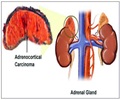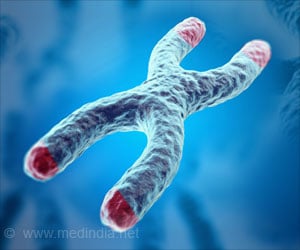US scientists say that the debilitating multiple sclerosis could be checked with the help of testosterone gel. But they also concede further research is called for.
Researchers at the University of California say they have been able to use testosterone gel to effectively slow down the progression of multiple sclerosis.
Only 10 men took part in the research, all had milder forms of MS, and more studies will be needed before doctors determine whether the treatment really works. Still, the researchers were impressed that the men's mental decline ceased, and the shrinking of their brains returned to the normal levels expected due to aging.Multiple sclerosis (MS) is a debilitating disease that affects neurons, the cells of the brain and spinal cord that carry information, create thought and perception, and allow the brain to control the body.
Surrounding and protecting some of these neurons is a fatty layer known as the myelin sheath, which helps neurons carry electrical signals.
MS causes gradual destruction of myelin (demyelination) and transection of neuron axons in patches throughout the brain and spinal cord. The name multiple sclerosis refers to the multiple scars (or scleroses) on the myelin sheaths. This scarring causes symptoms which vary widely depending upon which signals are interrupted.
Testosterone treatment is an attempt to stall such a process.
Starting around age 40, a man's body produces less testosterone. Testosterone is the main male hormone that maintains muscle mass and strength, fat distribution, bone mass, sperm production, sex drive, and potency.
Advertisement
For most men, testosterone levels naturally decline but still remain within the normal range throughout their lifetimes, causing no significant problems. But about two in 10 men age 60 and older have testosterone levels below the normal range (testosterone deficiency).
* Decreased energy
* Reduced muscle mass and strength
* Decreased cognitive function
* Less sexual interest or potency
* Depressed mood
In men with testosterone deficiency, testosterone therapy can restore sexual function and muscle strength, prevent bone loss and protect against heart disease.
(atherosclerosis). Also, some men taking testosterone therapy report an increase in energy, sex drive and well-being.
Some anti-aging enthusiasts claim that increasing the level of testosterone in older and healthy men provides these same benefits. Though potentially beneficial for some of these men, testosterone therapy isn't risk-free. High doses of testosterone may result in sleep apnea, infertility and excess blood production, which could increase the risk of stroke.
Increasing testosterone levels may also pose problems for the prostate, a small male gland that produces most of the fluids in semen. Testosterone naturally stimulates the growth of the prostate. Long-term testosterone treatment could cause prostate gland enlargement. Also, doctors are concerned that testosterone therapy might fuel the growth of prostate cancer that is already present.
Still a treatment that protects the central nervous system against multiple sclerosis would be a major breakthrough for the 400,000 Americans with the disease.
The average age of the participants in the California study was 46. After the researchers monitored the men's conditions for six months, each man applied 10 grams of a gel containing 100 milligrams of testosterone to his upper arms once daily for 12 months.
"We saw an improvement which was exciting," said study co-author Dr. Rhonda Voskuhl, professor of neurology at the University of California, Los Angeles. "This looks like it would be neuroprotective, which would be great."
The study authors also found that the rate of brain atrophy declined by two-thirds, to the rate expected during normal aging. In another promising sign, the men ended up with more muscle mass after undergoing the treatment.
Unfortunately, testosterone treatment would not be feasible in women because of its side effects, Voskuhl said. But researchers are looking into other possible treatments for women.
Voskuhl also thinks that testosterone treatment - if it turns out to work in other studies - could lead to better therapies for diseases such as Alzheimer's and Parkinson's.
The findings are published in the May issue of the Archives of Neurology.
But another expert, Dr. Moses Rodriguez, professor of neurology and immunology at the Mayo Clinic, said he was skeptical that the treatment would become common and noted that MS research has had a history of promising therapies that ultimately failed.
But the Mayo Clinic's Rodriguez, who's familiar with the study findings, said he doubts that testosterone therapy will become standard, because it has side effects and has been connected to an increased risk of prostate cancer. Also, much promising but preliminary MS research fails to bear fruit, he said.
Source-Medindia
GPL/B










